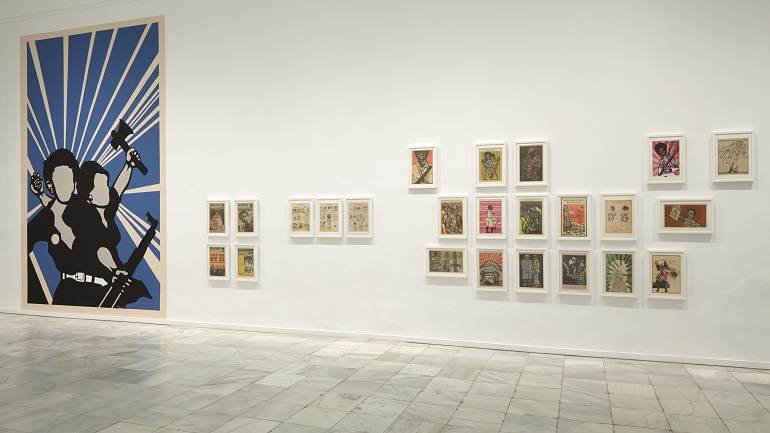The Spanish Association of Christian Lawyers is calling for the ouster of Museo Reina Sofía director Manuel Borja-Villel over a show it deems “anti-Catholic.” On view through February 9, 2015, Really Useful Knowledge has “an obvious anti-Catholic bias and might entail several crimes against freedom of religion,” the group claims. Artnet reports:
The Christian association has been irked by the installation Cajita de fósforos (Little Matchbox, 2005) by the Argentinian art collective Mujeres Públicas (Public Women). The work comprises a matchbox and a book, which features sentences like “the only Church that illuminates is the one that burns,” attributed to the Russian thinker Piotr Kropotkin. It subsequently became the motto of Spanish anarchist Buenaventura Durruti, who was killed at the start of the Spanish Civil War.
The group’s actions have sparked a counter-petition: the International Committee for Museums and Collections of Modern Art is defending the national museum’s free expression, stating “CIMAM wishes to encourage debate and civilized exchange of ideas and wants to express the deep concern for the turn of the actions against the freedom of artistic expressions and of the values of dialogue defended by the Museo Reina Sofía.”
- The Hirshhorn Museum and Sculpture Garden turns over a new leaf with a bold new vision. New director Melissa Chiu says she aims to enhance visitors’ appreciation of the museum by expanding technology use, particularly through interactive video installations and mobile device info apps.
- A glowing review of work previously deemed blasphemous: “Hurrah! An exorcism of the bad magic of 1999 has now finally arrived, in the form of the New Museum’s breathtaking building-filling Chris Ofili survey,” writes Jerry Saltz. “This is [Chris] Ofili fashioning his own history of art … one that shows Modernism’s warring mode of movements successively killing one another in order to live is less effective than letting all and any art live within one’s work.” Ofili’s survey, Night and Day, runs through January 25.
- For his new work, The Exceptional and the Everyday: 144 Hours in Kiev, Lev Manovich used thousands of Instagram photos taken during the 2014 Ukraine unrest to create data landscapes. “I’m basically trying to say that as opposed to a journalist who thinks about the ‘data’ as a kind of truth, that it’s a way to find out what happened, what I’m thinking about is its own reality,” he says. “It’s not a question of truth, it’s a question of making interesting connections.”
- “The only reason to do more expressive buildings is to humanize them. Dull glass boxes are cold and not friendly to humanity, and I am trying to change some of that.” Inspired by Paris and the “sacredness” of the site, Frank Gehry reveals what motivates him.
- Robert Gober always imagined his iconic sinks hanging in corporate boardrooms. “Art is about what you want to remind people about,” he tells Tyler Green, adding that they’d be “particulary reverberant” there. Also discussed in the podcast interview: AIDS, faith, and installations as “sacred spaces.”
- “#Distraction is the new #concentration,” tweets Kenneth Goldsmith. The poet wants to give grades for wasting time on the Internet in his new creative writing class at University of Pennsylvania. He claims that distraction can be “creatively fertile” and similar to Surrealist methodologies. Goldsmith’s new course would be a perfect supplement to his Uncreative Writing class where students must completely plagiarize and copy from other sources.
- It’s not artists’ responsibility to fix the world’s ills, says MacArthur “genius” grantee Rick Lowe, but as such work “takes a lot of creativity combined with empathy, compassion, and passion,” artists are well-suited to take it on. The biggest impact his work has created, Lowe believes, is in Assata Richards, the first woman of his Project Row Houses’ transitional housing for single mothers. Once Richards became a part of the community, her volatile temperament gradually dissipated and her life dramatically improved: she returned to school, earned a PhD degree in sociology, taught at the University of Pittsburgh, then became the commissioner on the housing authority. Lowe calls Richards his mentor now.
Follow Art News From Elsewhere on the Walker Art Center homepage or via @walkermag, the Walker’s editorial-focused Twitter feed.




